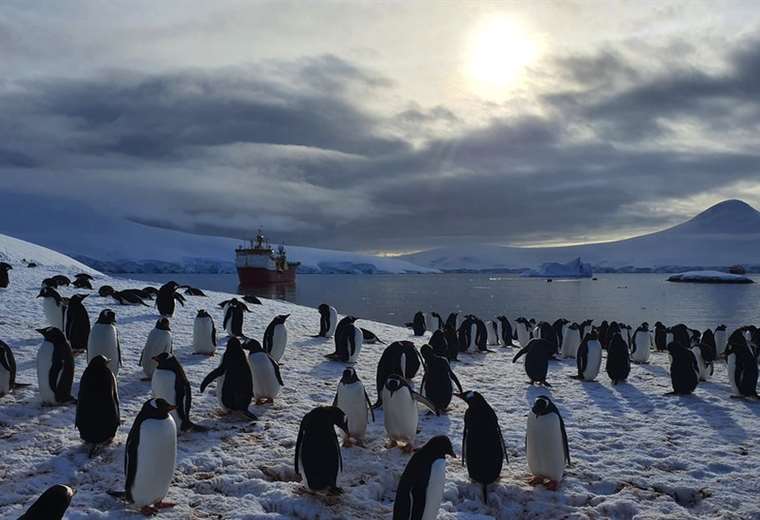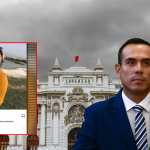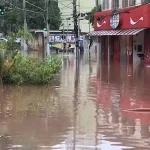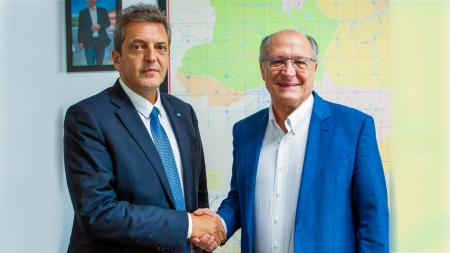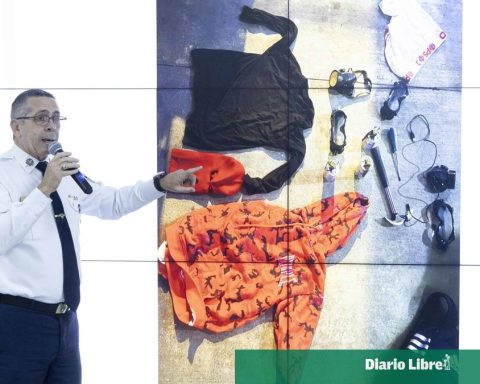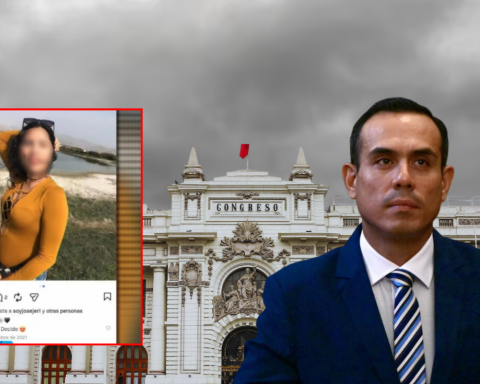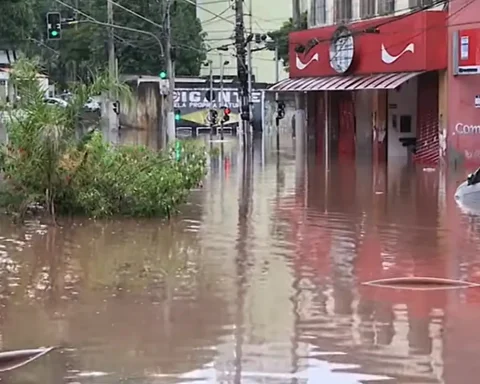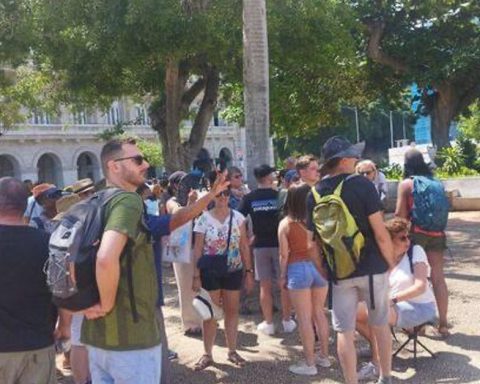December 23, 2022, 20:20 PM
December 23, 2022, 20:20 PM
When Clare Ballantyne arrived at the place she was going to call home for the next five months, she found it buried under feet of snow. “We warm up very quickly by digging a lot,” she says with a smile.
Clare was chosen along with three other women, Mairi Hilton, Lucy Bruzzone and Natalie Corbett, to look after the remote port of Port Lockroyabout 1,466 kilometers south of the Falklands/Malvinas Islands.
They managed to prevail over thousands of candidates who also applied to manage the base during the Antarctic summer for the UK Antarctic Heritage Fund.
What was once a British military base and research station now consists of a post office, a museum and a gift shop.
The team welcomes passing cruise ships and monitors the population of about 1,000 Juanito penguins who lives on the island.
Talking to the women is extremely difficult, but Clare and Mairi, the team’s wildlife monitor, managed to recount their experience over a spotty satellite phone line.
“We’ve cleared access to the buildings of snow, making sure the solar panels are snow unlocked and all working, we have enough water and gas and we’re safe to stay on the island,” Clare recounts.
The British Royal Navy came to help the team fix the museum’s roof, which had been damaged by the weight of the snow. Clare remembers the time when the sailors left and the team was left alone on the island, surrounded only by penguins and icebergs floating silently in the channel. “It was just amazing,” she says.
Clare’s job, as postmaster, is to send the postcards that send to countries all over the world tourists visiting the island.
“The mail I send from here takes about four weeks to reach the UK,” he says. “I’m excited to be at the beginning of that journey.”
The team has been in Port Lockroy for several weeks now and has settled into a well-oiled routine. “We get up at 7 in the morning,” Mairi says. “We had breakfast and went down to remove the snow from the place where the travelers arrive.”
“We have a cruise in the morning. Tourists come and visit the museum, the store and see the penguins. Then we have lunch and a second group of tourists arrives in the afternoon until 6. In the evening we have dinner, supervise the penguins and do any other task that is necessary,” he adds.
Port Lockroy is the Antarctica’s most popular tourist destination, with around 18,000 visitors each year. But it’s a symbiotic relationship: the team relies heavily on the assistance provided by passing boats.
“We don’t have running water, so we get our drinking water from the cruise ships,” Mairi says, “and we shower there, too.”
“We get fresh fruit and vegetables and bread from visiting ships. The crews take very good care of us,” adds Clare.
Since there is no internet connection in Port Lockroy, the main way for the team to stay in touch with their families and keep up with what’s going on in the outside world is by using the boats wifi. And while the team has received first aid training, if they need to see a doctor, they can find one on board visiting ships.
But it is not always so simple. The unpredictability of the Antarctic weather could suddenly keep the team isolated for days.
“You never know what the day will bring,” says Clare. “You don’t know if a boat is coming in the morning, if there is going to be a storm. You have to be very flexible.”
Even so, and despite the challenges, they are still in awe of their surroundings. “Every morning when you walk up the snowy steps of the building, the mountains and icebergs in the canal around us, it’s just beautiful and seeing the penguins makes you smilesays Clare.
Asked how it feels to be the only four humans among hundreds of resident penguins, Mairi says “they’re not as loud as I expected. They are very good neighbors And it’s a lot of fun to watch.”
The main task of the team with regard to wildlife is to count the eggs that are usually laid at this time of year. Although Mairi claims that the change in weather conditions seems to have delayed the breeding season.
“There’s a lot of snow and we also don’t have fixed sea ice in the bay, which is unusual. Penguin eggs won’t survive if they’re laid on snow, so if you keep having these warmer, milder winters it’s not going to be good for the penguins here.”
Clare and Mairi say they haven’t had much free time yet, but they’re trying to savor every moment they spend on the island. And for Christmas?
“We take the day off,” Mairi says. “Some of us are going to do a christmas pudding, mince feet (traditional British sweets) and gingerbread cookies. We’ll just kick back and have a Christmas dinner and do a lot of the things that you would normally do at home, but in Antarctica.”
Remember that you can receive notifications from BBC Mundo. Download the new version of our app and activate them so you don’t miss out on our best content.
